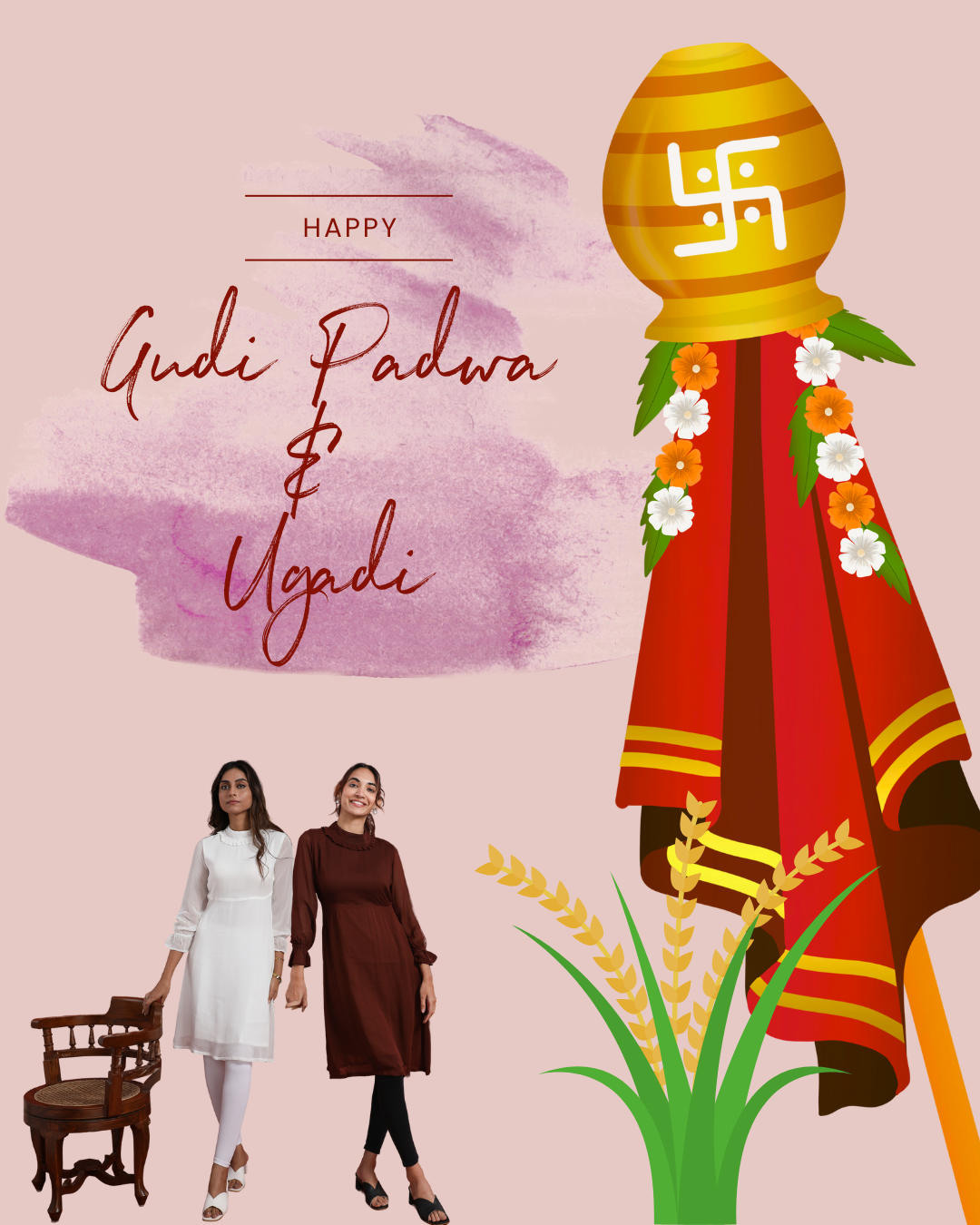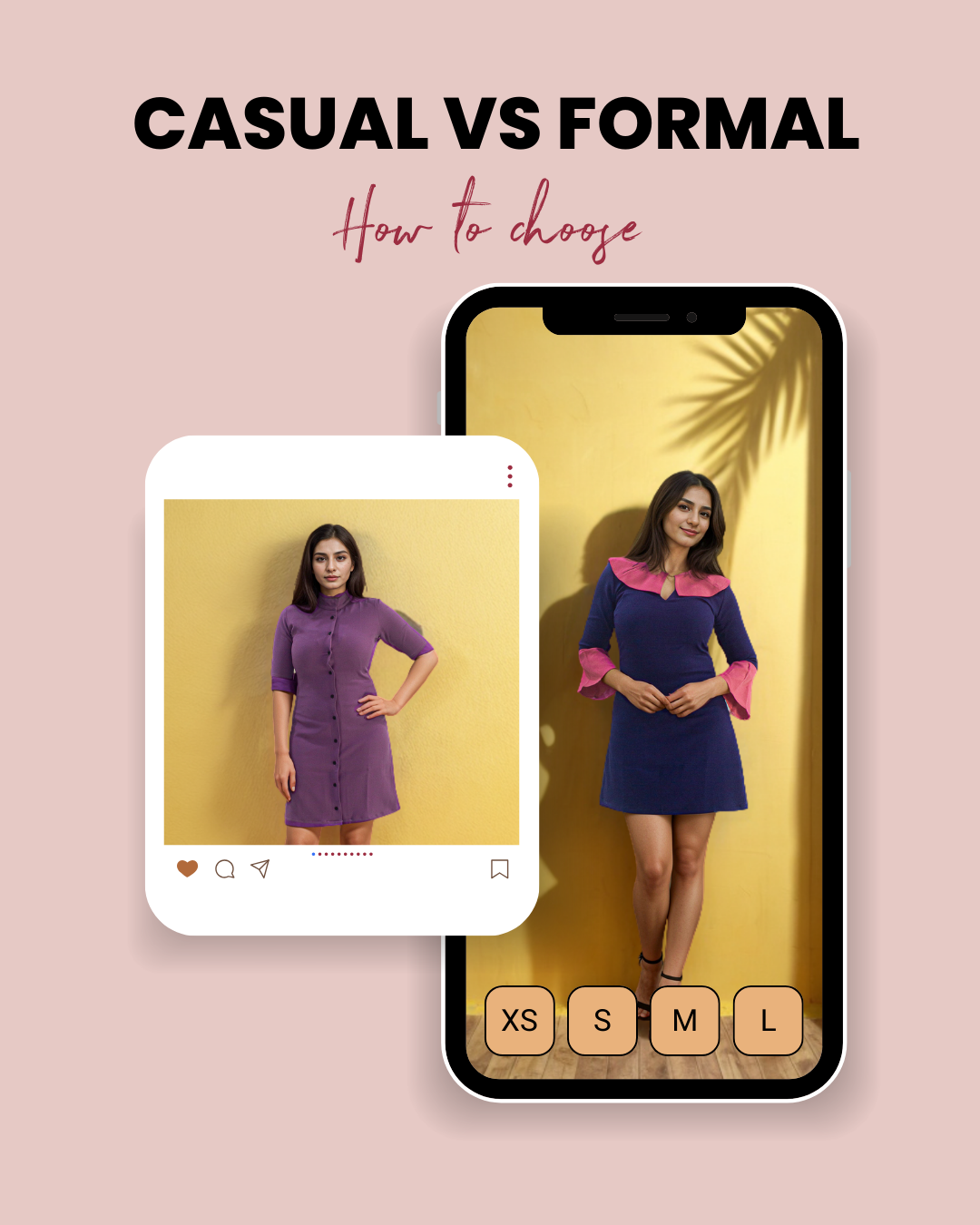Because in all honestly, you understand the difference and it’s about time you did, so the next time someone talks kurta and kurtis, you’ll be the one with some info at hand.
Kurta: The ‘kurta’ has a sophisticated and elegant appeal

Below are the parts that make a kurta complete:
- Length- Normally most of the designed kurtas are long in size, mid-thigh to knee-long or even longer. Sometimes it can go all the way to the ankles. It gives giving airy relaxed and traditional look.
- Fit- It’s not that body-hugging top that you need to hold your stomach in. It’s free and easy to wear and walk about – almost ideal for everything from lazing around indoors to attending a family event.
- Style – In the olden days, kurtas were quite plain in style, however, these days, they come in varying designs, prints, frills, and cuts. For instance, there is the option of dressing up the garment with an elaborately embroidered one or going with a simple one depending on the event.
- Sleeves – Mainly kurtas are knee-length kurtas with full sleeves but you will come across many such kurtas with half sleeves, three-quarters sleeves, or even sleeveless ones.
- Pairing- For women, Kurtas generally come with either salwars, churidar, or leggings. As for men, it is blended with pajamas, dhotis, or sometimes jeans as well.
Kurti: The Sibling Who Has Excessive Attitude

This is what makes a kurti unique where others fail.
- Length: Generally speaking, a kurti tends to be of a shorter length than that of a kurta. Perhaps a kurta would reach up to your knees, but a kurti generally would go only up to your waist or hip. It’s all in that cropped style while wobbling on the thresholds of a crop top. Some kurtis may be a bit longer than usual but such kinds hardly go past the mid-thigh.
- Fit: Most of the time kurtis are more fitted and can be worn as a top over other outfits. Unlike the kurta whose design is loose throughout and flowing, kurtis fit the body limits more. But, of course, this doesn’t mean there is discomfort.
- Style: Kurtis is very much effortless chic. They also come in plenty of – A-lines, straight cuts, flared or asymmetrical even. You can wear it to college or work or even on an outing and it would make you look good, without any effort at all.
- Sleeves: Kurtis can either come without sleeves or can have cap/sl half sleeves or the normal long sleeves. There is much more variation when it comes to kurtas.
- Pairing: In contrast to the kurta, kurtis can be clubbed with jeans, jeggings, skirts, palazzos, and shorts as well. It is excellent in providing that traditional and modern blend in styling all the while which is termed as ‘fusion’ that most people seem to appreciate.
Key Differences: Kurta vs. Kurti
If you are still wondering about the distinction between kurtas and kurtis, do not stress yourself. Here’s a quick summary for you:- Length: This is the most apparent one. Kurtas are long and usually knee length or more while kurtis are short more of a top.
- Occasion: Traditionally and formally kurtas are worn, more often than not, during occasions such as weddings, festivals, religious ceremonies, etc. On the contrary, kurtis are more for daily wear – treat them as your friend for casual outings, work or even lazing around at home.
- Style: Kurtas are predominantly worn to enhance the classic look whereas kurtis can be easily swayed towards a stylish approach as they can be both modern and traditional at the same time.
- Pairing: Kurtas are usually paired with customary cut work bottoms like churidars, pajamas, and salwars, however, kurtis go with just about everything. You can even wear a kurti with ripped jeans and no one will care.
- Fit: Kurtas are mostly free size while intrusive sandy die-released inserts wear kurtis fit in firmly, giving the essence of the shape body beautifying.
Which One’s For You?
After taking in all this information, you should be thinking when buying Indian wear where to go – kurta or kurti - which one to choose. Well, it is up to you as to how you feel and the setting.If it’s a family function or you just wish to look classy in the kabuki – donn the kurta.
In case you wish to look simple and stylish at the same time opting for full-day wear: opt for the kurti.
This by no means restricts you to one option over the other. Own both styles and rock them as per your mood! When it comes to traditional or contemporary style, kurtas, and kurtis are always a good choice.



